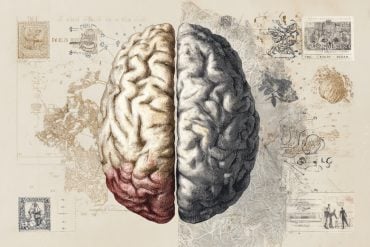Summary: Researchers conducted a study examining the impact of language and ideological beliefs on pronoun usage. The study, which compared pronoun use in English, a language with gender-specific pronouns, and Turkish, which uses gender-neutral pronouns, found that pronoun preferences align closely with each language’s structure.
Additionally, individuals with more essentialist views on identity were more likely to favor gender-specific pronouns. These findings suggest that both linguistic context and personal beliefs significantly influence how people use and view pronouns.
Key Facts:
- Language Influence: English speakers predominantly use gender-specific pronouns, whereas Turkish speakers use a single pronoun that can refer to any gender, indicating that language structure heavily influences pronoun usage.
- Ideological Impact: People with essentialist ideologies about gender are more likely to support the use of gender-specific pronouns, showing a clear link between personal beliefs and language use.
- Cultural Considerations: The study highlights the challenges and complexities involved in adopting gender-neutral pronouns in languages traditionally dominated by gender-specific terms.
Source: University of New Hampshire
Pronouns like ”he” and “she” are at the center of much debate as society tries to shift to using more gender-inclusive pronouns like ‘they’—especially when referring to those with identities that do not fit with traditional pronouns.
Research at the University of New Hampshire looked at the use of pronouns in two different languages—including one where all pronouns are identity neutral—and found that people’s use of pronouns reflects not just the language they speak but also their ideologies.
“Most people want to be thoughtful and inclusive and say they are open to using pronouns like “they” and “them” but in reality it can often be hard for some to make the shift,” said April Bailey, assistant professor of psychology and lead author.
“We wanted take a closer look at societal attitudes about pronoun use and see if it was connected to the language they speak and their beliefs about identity.”
In their research, published in the Journal of Experimental Psychology: General, the researchers asked a series of questions about pronouns to participants from two languages, English and Turkish, that have very different pronoun systems.
English pronouns commonly denote binary gender, for example “he” for men and “she” for women. In the Turkish language, pronouns are identity-neutral, for example, “o” can refer to “he”, “she” or “it” depending on the noun it refers to. There are not any specific masculine or feminine pronouns.
In a series of three studies, participants were asked to evaluate different types of real and hypothetical pronouns, including binary gender pronouns, race pronouns and identity-neutral pronouns.
The researchers found that both groups generally endorsed the pronouns that were most familiar and common in their respective languages. English-speaking participants mostly endorsed binary gender pronouns, like “he” and “she”. Turkish-speaking participants mostly endorsed identity-neutral pronouns, like “o”.
The researchers also found that participants’ answers reflected specific ideologies so they looked at the social-cognitive process—how people process, store and apply information—to see how that affects the reasoning around pronouns.
Among both English and Turkish speaking participants, those who were high in essentialist ideologies about identity—assuming people are inherently and permanently either male or female—also endorsed binary gender pronouns and race pronouns more, showing that ideological beliefs can influence beliefs about pronouns.
“Similar to other function words, like conjunctions, pronouns are some of the
most frequently used words in any language,” said Bailey. “However, unlike those other words, pronouns can encode social information that may shape a person’s beliefs and how they reason about their social world.”
The researchers say there are valid debates on both sides of the issues – why gender pronouns are helpful and also how they can alienate some non-binary individuals. For instance, using “she” can make women more visible when referring to a more male-dominated field.
However, those who point to drawbacks feel binary gender pronouns exclude non-binary individuals. They say language can shape how people think and despite recent trends toward using “they” and “them” more often, traditional gender pronouns, like “he” and “she”, are still used more often.
The researchers hope their work will shine a light on why many English speakers struggle with using gender neutral pronouns like “they” and ”them” and contribute to theories on how people reason about language and ultimately help inform policy-relevant questions about whether and how to implement language changes for social purposes.
Co-authors on the study include Robin Dembroff, Yale University; Daniel Wodak, University of Pennsylvania; Elif G. Ikizer, University of Wisconsin-Green Bay; and, Andrei Cimpian, New York University.
About this language and ideology research news
Author: Robbin Ray
Source: University of New Hampshire
Contact: Robbin Ray – University of New Hampshire
Image: The image is credited to Neuroscience News
Original Research: Closed access.
“People’s beliefs about pronouns reflect both the language they speak and their ideologies” by April Bailey et al. Journal of Experimental Psychology General
Abstract
People’s beliefs about pronouns reflect both the language they speak and their ideologies
Pronouns often convey information about a person’s social identity (e.g., gender). Consequently, pronouns have become a focal point in academic and public debates about whether pronouns should be changed to be more inclusive, such as for people whose identities do not fit current pronoun conventions (e.g., gender nonbinary individuals).
Here, we make an empirical contribution to these debates by investigating which social identities lay speakers think that pronouns should encode (if any) and why.
Across four studies, participants were asked to evaluate different types of real and hypothetical pronouns, including binary gender pronouns, race pronouns, and identity-neutral pronouns.
We sampled speakers of two languages with different pronoun systems: English (N = 1,120) and Turkish (N = 260). English pronouns commonly denote binary gender (e.g., “he” for men), whereas Turkish pronouns are identity-neutral (e.g., “o” for anyone).
Participants’ reasoning about pronouns reflected both a familiarity preference (i.e., participants preferred the pronoun type used in their language) and—critically—participants’ social ideologies.
In both language contexts, participants’ ideological beliefs that social groups are inherently distinct (essentialism) and should be hierarchal (social dominance orientation) predicted relatively greater endorsement of binary gender pronouns and race pronouns.
A preregistered experimental study with an English-speaking sample showed that the relationship between ideology and pronoun endorsement is causal: Ideologies shape attitudes toward pronouns.
Together, the present research contributes to linguistic and psychological theories concerning how people reason about language and informs policy-relevant questions about whether and how to implement language changes for social purposes.








